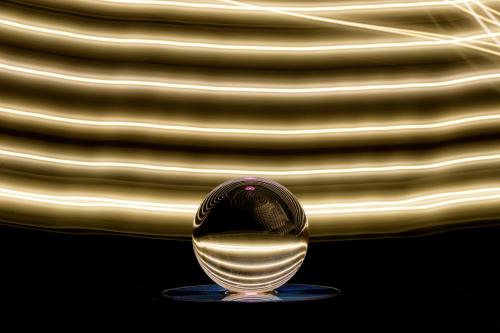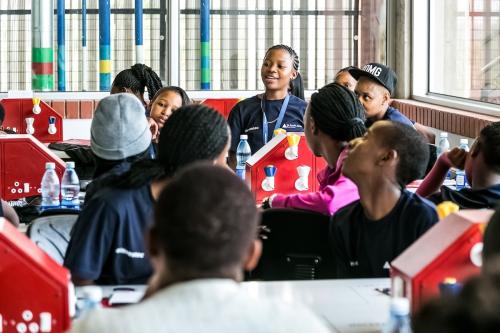It was a day of disappointments for anyone hoping for a breakthrough between the United States and Iran, whose presidents both spoke today at the United Nations General Assembly. For those who anticipated a historic handshake or a sensational overture in New York, neither side delivered. The day’s developments punctured some of the inflated expectations that have been buoyed by Tehran’s recent overtures, and offered a timely reminder of the hurdles facing any diplomatic engagement between the two old adversaries.
President Barack Obama devoted a sizeable proportion of his speech to addressing Iran, but largely stuck to the administration’s long-scripted themes and failed to offer any dramatic new gestures aimed at Tehran. His tone was sober rather than soaring. For his part, Iran’s President Hassan Rouhani gave a discursive speech that concluded with the kooky catchphrase — the WAVE, or “world against violence and extremism” — that almost evoked the annual UNGA antics of his predecessor, Mahmoud Ahmadinejad, rather than the well-honed media mastery that Rouhani has demonstrated since his presidential campaign.
And to the disappointment of a breathless press corps, the much anticipated handshake between President Obama and President Rouhani did not materialize. But not for lack of trying on the American side, apparently. U.S. officials have briefed the throngs of reporters who assembled in New York, poised for the possible photo op, that the administration offered “an encounter” between the two leaders on the margins of the United Nations General Assembly, but U.S. officials were rebuffed by their Iranian counterparts on the grounds that such a meeting would be “too complicated.” And Rouhani deliberately sidestepped the one occasion where the two men were to be in close quarters, a lunch for world leaders hosted by UN Secretary-General Ban Ki Moon.
Of course it would be too complicated. As I wrote last week:
“I am skeptical about the utility of an Obama-Rouhani meeting, as advocated by others. I would question whether the benefits of a personal interaction really outweigh the domestic political risks, particularly for Rouhani. A handshake with the Great Satan’s president would be reasonably popular on the streets, but I suspect many Iranian political figures — even beyond the hard-liners — would wonder what Rouhani had received in return for overcoming one of the most longstanding and fiercely guarded dimensions of the regime’s official dogma.”
There was no real upside to a presidential meeting for the Iranians, and plenty of political risk at home. Anyone with even the slightest understanding of Iran could predict that — despite the ground-breaking rhetoric we’ve heard from Rouhani, or possibly because of it — Tehran would ultimately seek to avoid a personal interaction that would produce nothing more substantial in the way of payoff than a photo op. Rouhani was elected precisely because of his well-honed abilities to advance the art of the possible in Iran; theatrical gestures and political audacity were his predecessor’s trademark, and his undoing. Rouhani is far too pragmatic to gamble his brief honeymoon on a publicity stunt.
By the same token, there were few real benefits for President Obama in a meeting with Rouhani, and no legitimate justification for one. World leaders should not meet simply because there are cameras present, and the presidents of two hostile states should not shake hands until and unless it is preceded by the hard work of real diplomacy — hammering out a substantive agreement of the issues at stake between the two sides. Otherwise, it is premature and potentially embarassing, like the images of senior Obama administration officials dining with Bashar Al Assad in Damascus when he was a putative reformer. A durable deal is more important than a photo op, even a historic one.
So why did the White House continue to hype the possibility of a meeting? And why did U.S. officials pursue Iranian diplomats in hopes of engineering one? Some have argued that the very offer of a meeting by the White House will give the Administration an advantage in parrying the Iranian charm offensive. Possibly, but I’ve seen no evidence that Iran’s recent overtures had begun to erode the international consensus around the need for Tehran to accept meaningful constraints on Iran’s nuclear activities.
So I don’t see any real public relations return to appearing overly eager to orchestrate a hallway greeting. And frankly, it’s unseemly for the President of the United States to be chasing an adversary through the halls of the United Nations looking for a fist-bump. Iran remains one of Washington’s most urgent and complicated security challenges, and rapprochement remains an objective rather than an achievement. Handshakes can wait until there is even a modicum of mutual trust. In any case, Obama may have been glad for the snub a few hours later, after Rouhani’s dud of a speech.
In the end, I think the irrational exuberance was overdue for some deflating; expectations got out ahead of reality. Despite the day’s disappointments, the near-term prospects for diplomacy between Washington and Tehran are encouraging. The real news of the week was yesterday’s announcement of unprecedented ministerial-level talks on the Iranian nuclear issue, to be held later in the week in New York. The meeting will include Iranian Foreign Minister Mohammad Javad Zarif and Secretary of State John Kerry, along with their European, Russian and Chinese counterparts. That’s where the tough but essential work of crafting a durable framework for resolving Iran’s standoff with the world will begin. It’s not a handshake, but it’s a meaningful step in the right direction.
The Brookings Institution is committed to quality, independence, and impact.
We are supported by a diverse array of funders. In line with our values and policies, each Brookings publication represents the sole views of its author(s).




Commentary
September 24, 2013